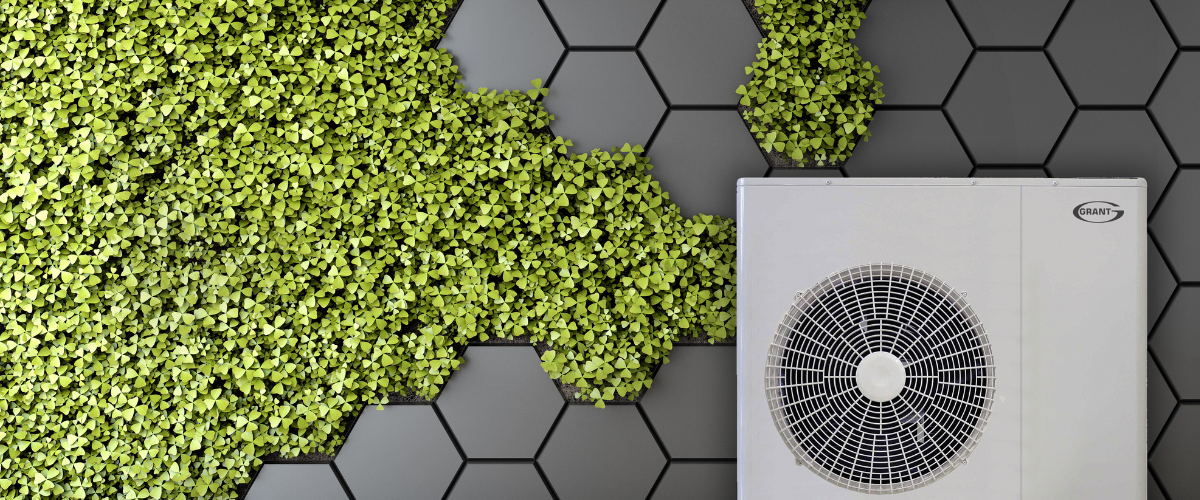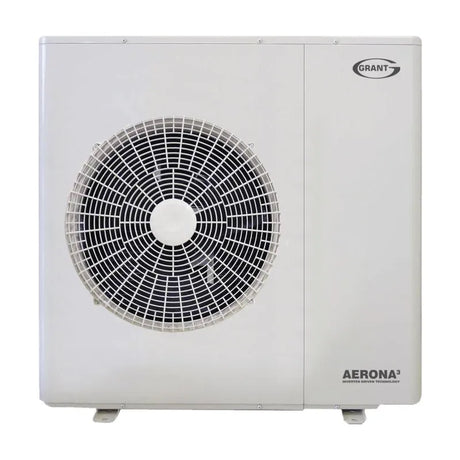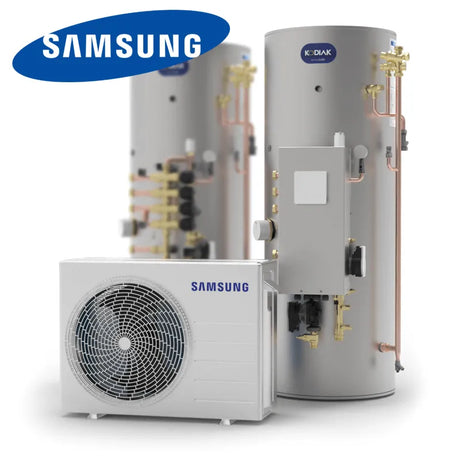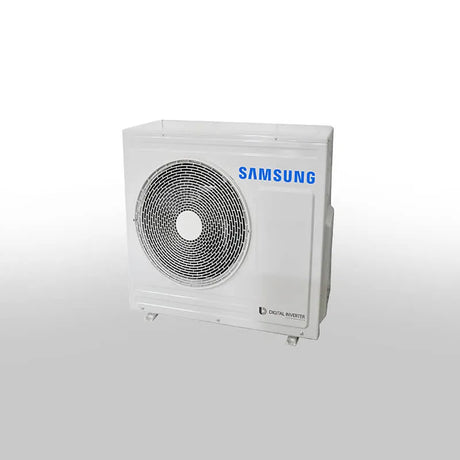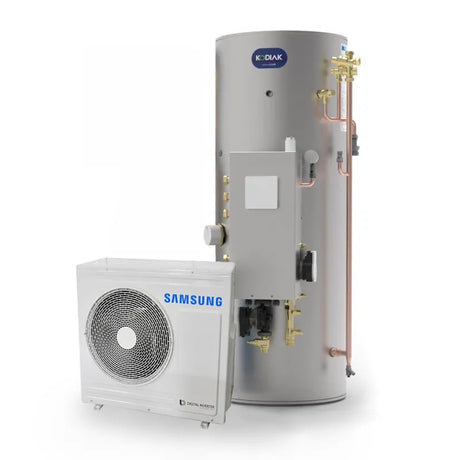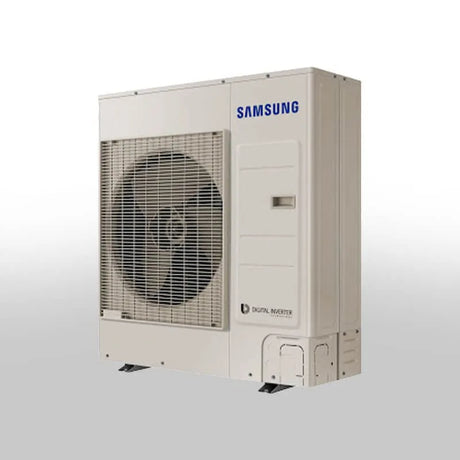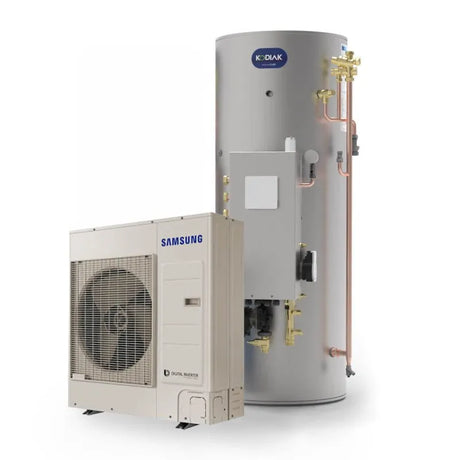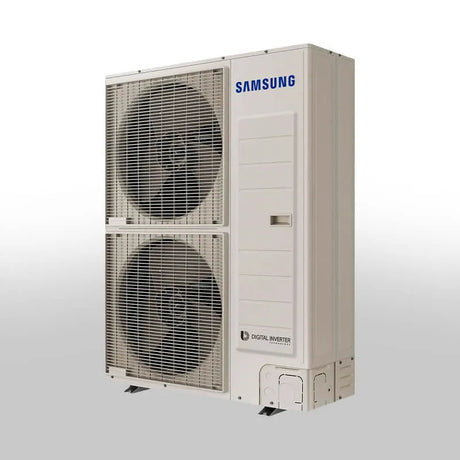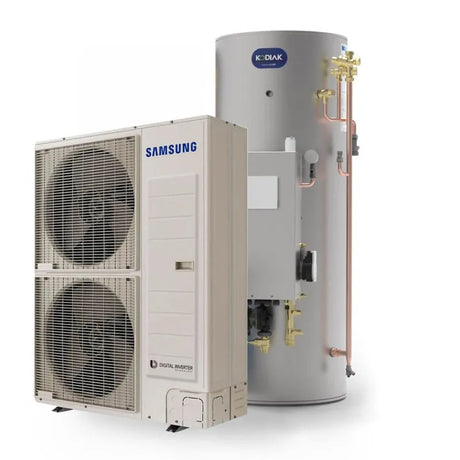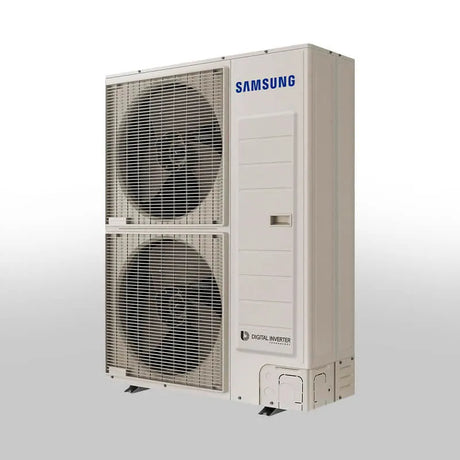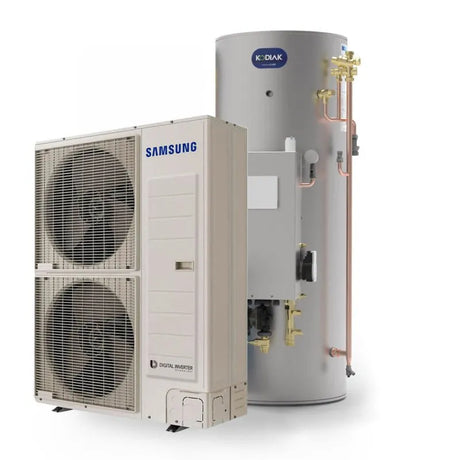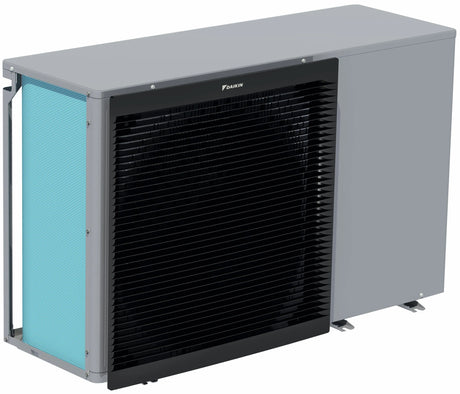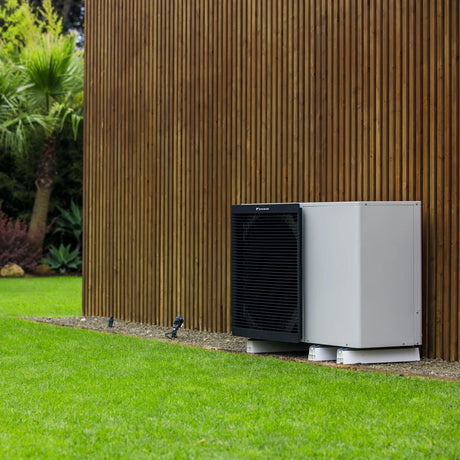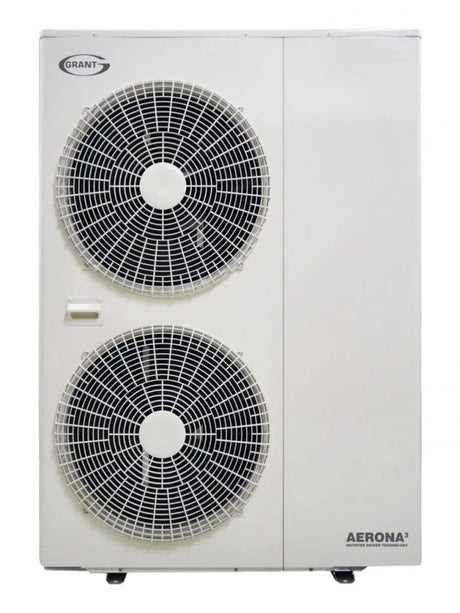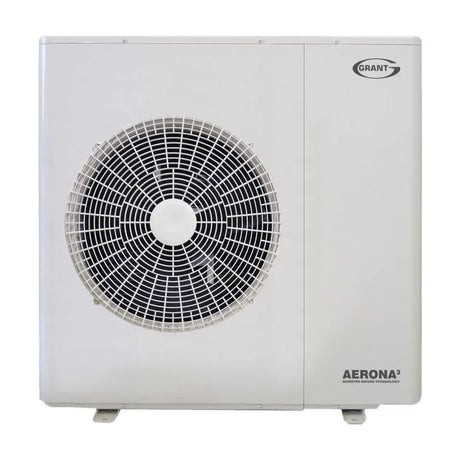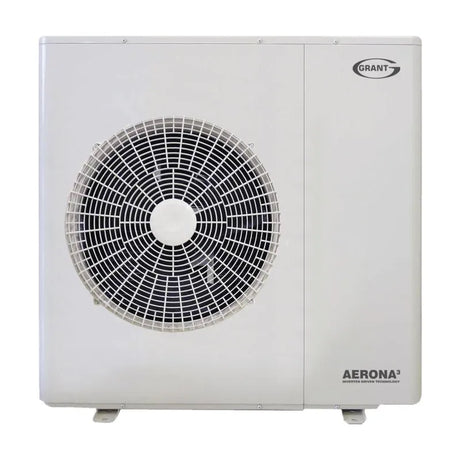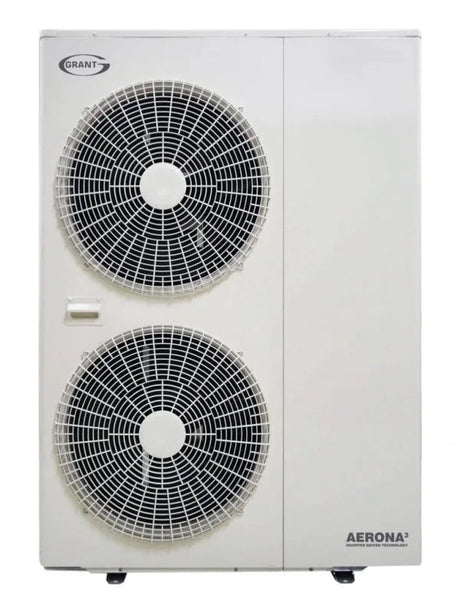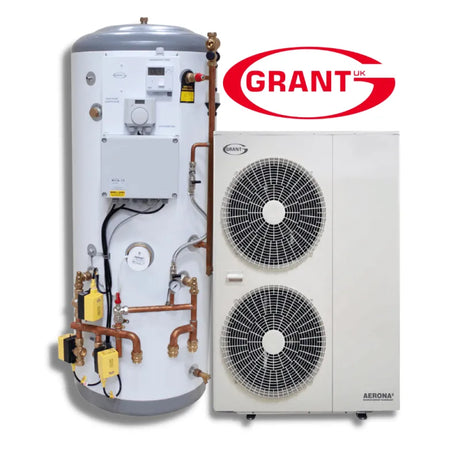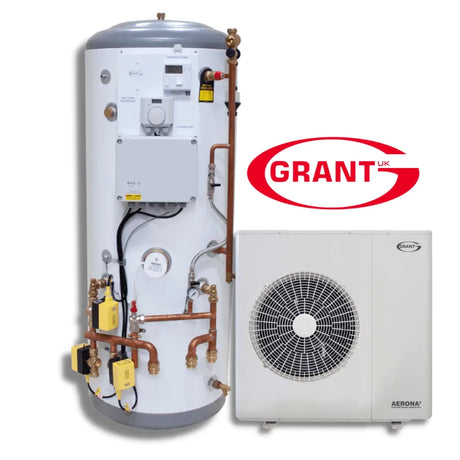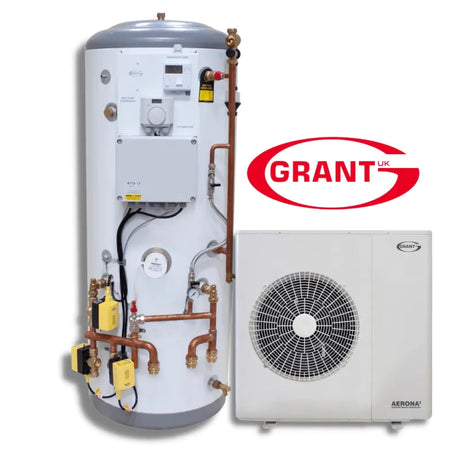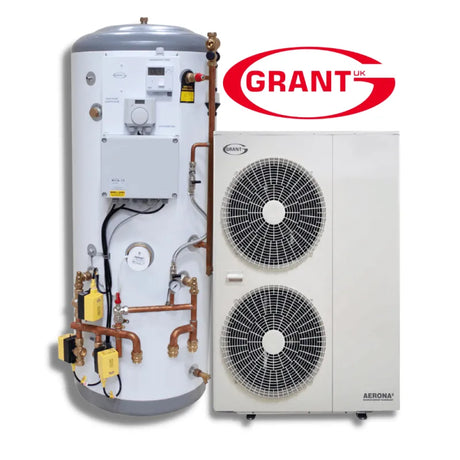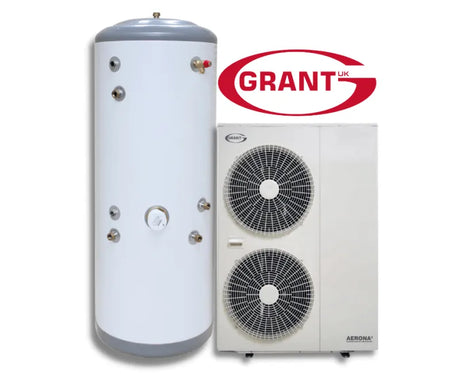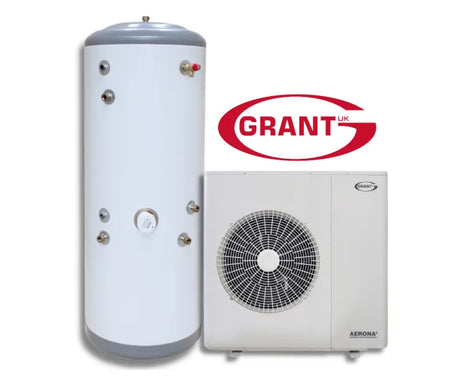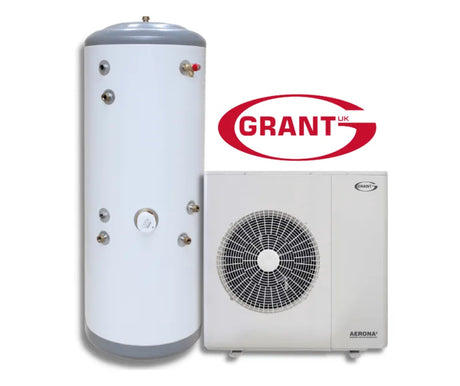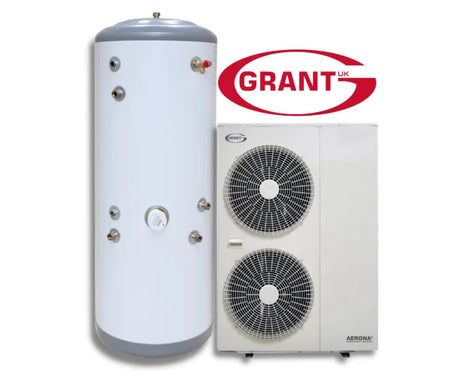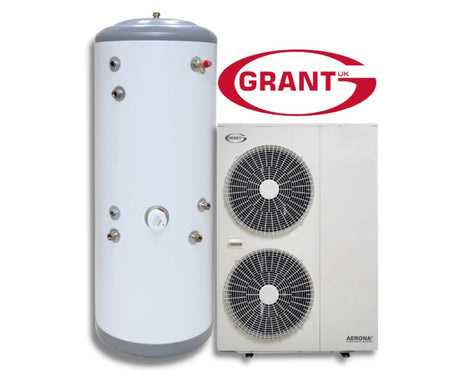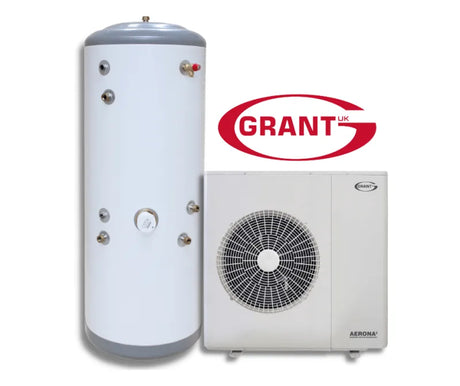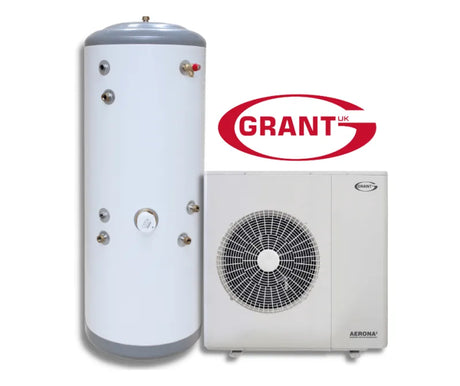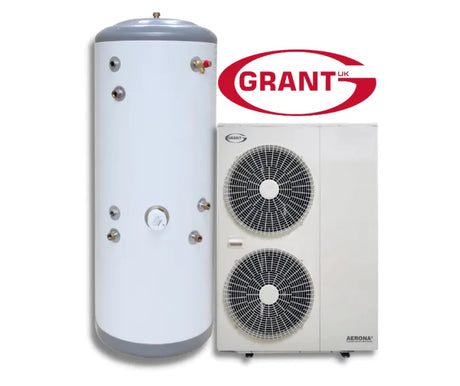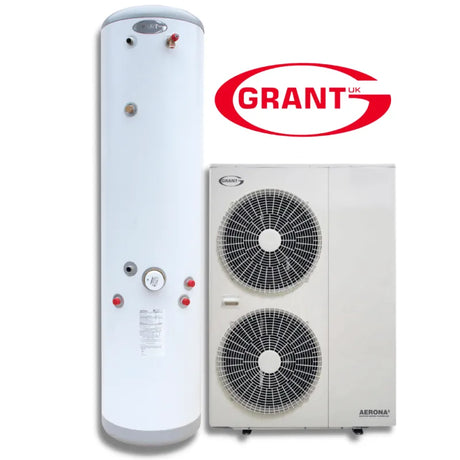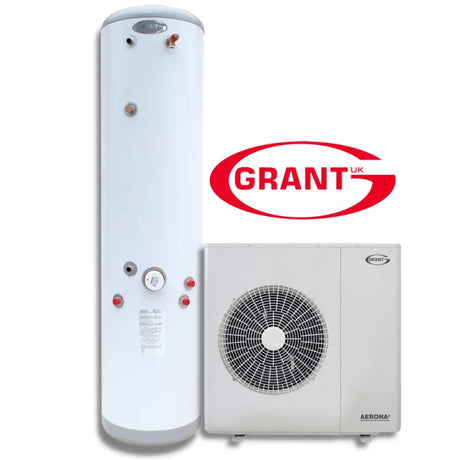
Types of Air Source Heat Pumps
There are two distinct types of air source heat pumps on the market: monobloc and split systems.
- A monobloc system has all the necessary components in a single outdoor unit, with pipes that carry water to the central heating system and a hot water cylinder inside your home.
- A split system separates the components between indoor and outdoor units.
Monobloc systems, the type we mainly sell, have plenty of excellent benefits. They are more compact and therefore easier to install than split systems are. Because of how compact they are, all of the components are located in one place and therefore boast improved performance in colder climates. Not only that but as there is no need for FGAS-approved refrigerant engineers to install this type of system, a monobloc heat pump will typically have lower installation costs than a split system will.
Benefits of Air Source Heat Pumps
Air source heat pumps have multiple benefits that you might want to consider.
Lower your energy bills
Making the move to an air source heat pump means you could save some money on your heating bills as it doesn’t rely on gas. Although a heat pump uses electricity to run, the savings you can make overall outweigh the cost of running it. Unless you have other appliances that are gas-reliant, such as a stove or gas oven, you could wave goodbye to gas bills entirely.
Help to minimise your carbon footprint
Air source heat pumps are much more environmentally friendly compared to traditional gas or oil boilers and can help to reduce your home’s carbon footprint.
No more fuel deliveries
If you currently have an oil or LPG heating system, you already know that organising fuel deliveries and storing the fuel can be a pain. Air source heat pumps don’t require any additional fuel so you don’t have to deal with anymore deliveries and can save storage space.
Future-proof your home
Heat pumps are set to become an even more important part of the future of home heating. Installing one now will future-proof your home with the latest technology, setting you up for the big boiler switch in the next couple of decades.
Eligible for grants
The UK government is offering grants to those switching to heat pumps called the Boiler Upgrade Scheme. You can see up to £5,000 off the installation price of your air source heat pump if you apply!
Disadvantages of Air Source Heat Pumps
When considering air source heat pumps for your home, it's essential to also understand the potential challenges.
Initial cost
Air source heat pumps tend to have a higher upfront cost when compared to traditional heating systems. However, this investment often pays off in the long run through energy savings and lower operating costs.
Noise level
While generally quieter than when they first were developed, air source heat pumps are known to produce some noise during operation. Manufacturers are continually improving designs to minimise noise.
Installation complexity
Installation can be more complex when compared to classic heating methods. However, when using a installer, it should be a smooth process.
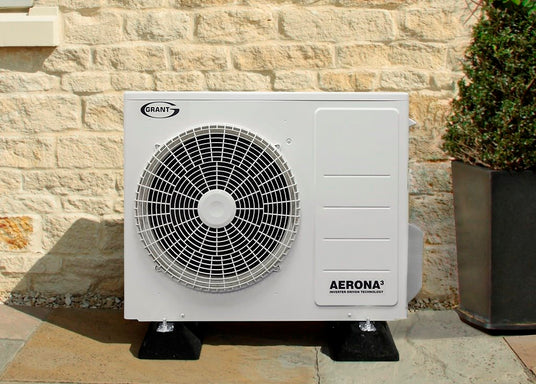
Other considerations before buying an air source heat pump
There are some other things to keep in mind before you buy your air source heat pump.
Air source heat pumps can fall under permitted development, meaning you don’t need to apply for planning permission anymore (although this depends on where you live so make sure you check), but they do need to meet MCS020 standards.
Shop Air Source Heat Pumps
View allFrequently Asked Questions
Can I use an air source heat pump with my existing radiators?
Can I use an air source heat pump with my existing radiators?
Yes, air source heat pumps can often be integrated with existing radiators. However, since heat pumps operate at lower temperatures than traditional boilers, your radiators may need to be larger or supplemented with underfloor heating to achieve the desired warmth.
How long do air source heat pumps last?
How long do air source heat pumps last?
Air source heat pumps have a typical lifespan of 15 to 20 years, depending on usage and maintenance. Regular servicing can help ensure that your system operates efficiently throughout its lifespan, providing reliable heating for many years.
Do air source heat pumps require a lot of maintenance?
Do air source heat pumps require a lot of maintenance?
Air source heat pumps require minimal maintenance compared to other heating systems. Regular checks, typically once a year, are recommended to ensure the system is running efficiently. This includes cleaning filters, checking refrigerant levels, and inspecting the system for any potential issues.
Can an air source heat pump work in cold weather?
Can an air source heat pump work in cold weather?
Yes, modern air source heat pumps are designed to work efficiently even in cold weather. They can extract heat from the air at temperatures as low as -15°C or lower. While their efficiency may decrease in extreme cold, they can still provide adequate heating, and supplementary heating can be used if necessary.

